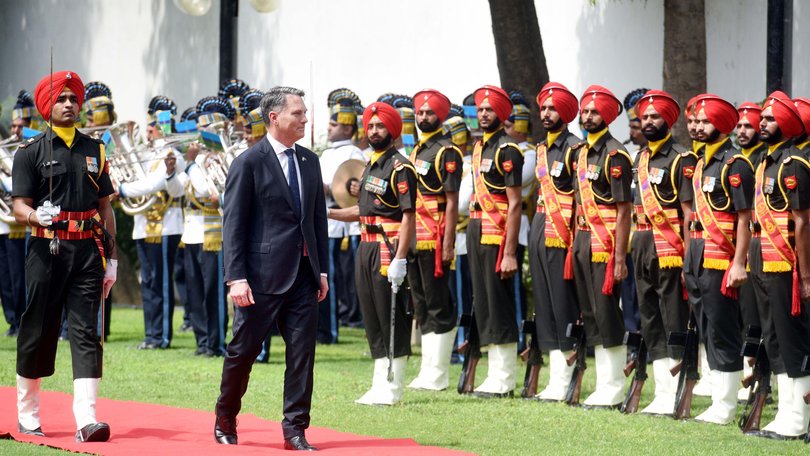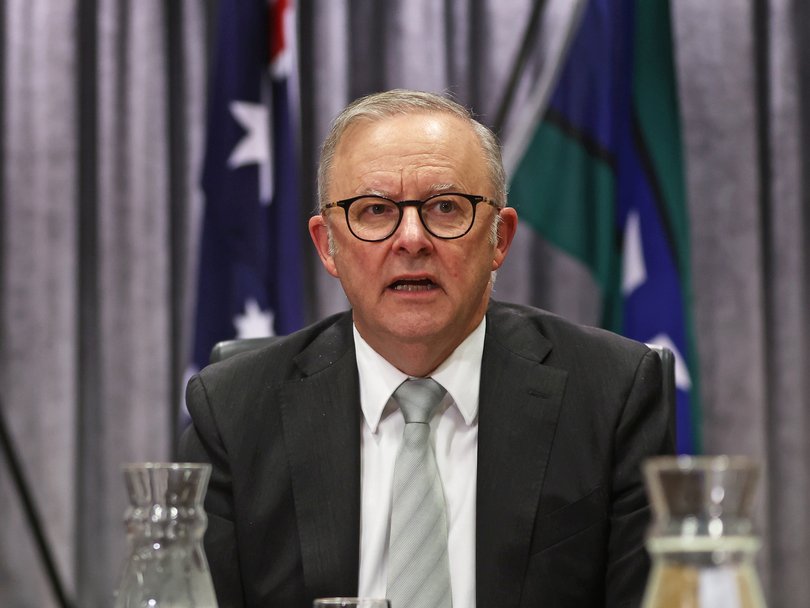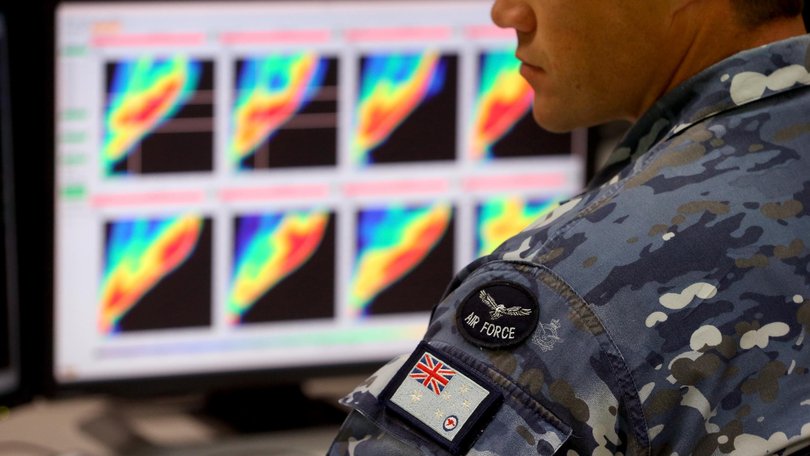Richard Marles will discuss defence ‘vision’ with India in the face of China’s commotion in Indian Ocean
Richard Marles’ visit to India underscores efforts to strengthen Australia’s defence ties in the Indian Ocean after the China commotion.

Deputy Prime Minister Richard Marles will hold high-level defence talks in India on Wednesday, as the Government faces continued calls to step up its military spending and engagement with key allies to deter conflict in the Indo-Pacific.
Mr Marles’ visit to India, to discuss a “shared vision for the Indian Ocean” is the third leg of a tour to the Maldives, Sri Lanka and Indonesia, underscoring Canberra’s efforts to cement defence ties in its neighbourhood in the face of China’s massive military build-up. He is expected to meet with India’s Defence Minister Rajnath Singh.
Prime Minister Anthony Albanese was grilled for a second day in a row on Tuesday about demands from the Trump administration at the weekend for Australia to up its defence investment to 3.5 per cent of GDP to counter increasingly complex geostrategic risks.
Sign up to The Nightly's newsletters.
Get the first look at the digital newspaper, curated daily stories and breaking headlines delivered to your inbox.
By continuing you agree to our Terms and Privacy Policy.The unveiling of UK Prime Minster Keir Starmer’s major defence review on Monday, with a pledge to make Britain “battle-ready” with up to 12 new nuclear-powered submarines and a 3 per cent of GDP defence spending goal in the next parliament has added to pressure on Australia to commit more to global deterrence efforts.

But Mr Albanese, on a visit to Perth, reiterated his position that Australia is a “sovereign nation” that will “make decisions in our national interest”.
Mr Albanese has consistently pointed to an additional $10b of investment into defence over the forward estimates since a spat last week between the Government and the Australian Strategic Policy Institute after the think tank warned of a “major disconnect” between the urgency of security threats and defence spending.
Debate over the thorny political issue will continue in Canberra on Wednesday at a major defence conference hosted by ASPI on preparedness and resilience and headlined by Admiral David Johnston, chief of the Australian Defence Force, and Defence Industry Minister Pat Conroy.
The Prime Minister on Tuesday signalled an openness to raising spending above the current projection of 2.3 per cent by 2033, telling journalists this was “not a goal”.
”Our goal is to give Australia the capability that it needs,” he clarified, adding the Government also prioritised and investment “in our relationships in the region”.

It was “not by accident” that the first overseas trip of his second term was to Indonesia, said Mr Albanese.
Defence experts note that Mr Marles’ visit to India also indicates the premium Canberra puts on its blossoming defence relationship with New Delhi.
Dr Rajeswari Pillai Rajagopalan, a resident senior fellow and India foreign policy expert at ASPI, said the choice of India showed the Australian Government viewed it as a “critical pillar” of its Indo-Pacific partnerships.
“In terms of political articulation, strategic messaging, both India and Australia appear to be very clearly intended to strengthen that partnership,” she said.
The Indian side was looking for more collaboration on defence technology and trade, as well as on joint research and development, added Dr Rajagopalan.
Indian media reports have in recent months suggested New Delhi is in talks with Russia — historically a top arms supplier to the South Asian nation — to acquire an over-the-horizon radar system with advanced capabilities to detect and track threats including ballistic missiles and stealth aircraft.
The Indian government has not confirmed the reports and did not reply to a request for comment. Analysts have also questioned Russia’s reliability in providing such technology in wartime.
Some, however, say India’s need for advanced warning systems may present an opportunity for Australia, which in March announced a $6.5b deal with Canada to acquire its Jindalee Over-the-Horizon Radar (JORN).
“They do need those kinds of capabilities,” Dr Rajagopalan said of India’s reported aim to acquire the technology, suggesting it was an area that could be explored further with Australia.
But she said India was keen to develop military technology and platforms in partnership with countries that had the capabilities, rather than just buy equipment outright.
“India is trying to move away from just buying platforms, equipment, off the shelf to jointly developing systems,” she said.
A key area of future cooperation with Australia could be in the development of cheap drones, which are currently changing the face of warfare, said Dr Rajagopalan.
Dr Euan Graham, a senior analyst and naval expert at ASPI, said the India-Australia relationship had been on a “positive trajectory for a number of years,” with defence ties currently in the “driving position” and the source of recent momentum.

There had been a steady deepening of military exercises that required a significant level of trust, including anti-submarine warfare, he said.
Mr Marles visit to India could also offer the opportunity for both sides to take soundings about the desire to add a defence component to the so-called Quad, a four-way regional security and diplomatic dialogue between Australia, the US, Japan and India.
Quad members have historically tread carefully with regional sensitivities about military alignments by stressing their diplomatic and foreign policy cooperation.
But a Quad statement in January, in the days following the inauguration of President Donald Trump, mentioned maintaining “security in all domains,” before explicitly adding that, “we also strongly oppose any unilateral actions that seek to change the status quo by force or coercion,” — a phrase viewed as a veiled reference to China’s military ambitions.
The statement represented a “big shift” that Australia had signed onto, said Dr Graham, although he pointed to a lingering degree of caution in putting a defence spin on the Quad.
“I think the big shoe that’s got to drop will be India’s hosting of the next Quad leaders’ summit,” he said, referring to a meeting due later this year.
Whether Mr Marles’ trip was preparing the ground for that summit was a question worth asking, he said.

